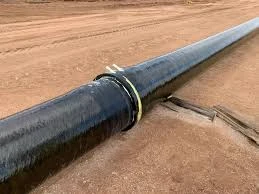
-
 Afrikaans
Afrikaans -
 Albanian
Albanian -
 Amharic
Amharic -
 Arabic
Arabic -
 Armenian
Armenian -
 Azerbaijani
Azerbaijani -
 Basque
Basque -
 Belarusian
Belarusian -
 Bengali
Bengali -
 Bosnian
Bosnian -
 Bulgarian
Bulgarian -
 Catalan
Catalan -
 Cebuano
Cebuano -
 China
China -
 China (Taiwan)
China (Taiwan) -
 Corsican
Corsican -
 Croatian
Croatian -
 Czech
Czech -
 Danish
Danish -
 Dutch
Dutch -
 English
English -
 Esperanto
Esperanto -
 Estonian
Estonian -
 Finnish
Finnish -
 French
French -
 Frisian
Frisian -
 Galician
Galician -
 Georgian
Georgian -
 German
German -
 Greek
Greek -
 Gujarati
Gujarati -
 Haitian Creole
Haitian Creole -
 hausa
hausa -
 hawaiian
hawaiian -
 Hebrew
Hebrew -
 Hindi
Hindi -
 Miao
Miao -
 Hungarian
Hungarian -
 Icelandic
Icelandic -
 igbo
igbo -
 Indonesian
Indonesian -
 irish
irish -
 Italian
Italian -
 Japanese
Japanese -
 Javanese
Javanese -
 Kannada
Kannada -
 kazakh
kazakh -
 Khmer
Khmer -
 Rwandese
Rwandese -
 Korean
Korean -
 Kurdish
Kurdish -
 Kyrgyz
Kyrgyz -
 Lao
Lao -
 Latin
Latin -
 Latvian
Latvian -
 Lithuanian
Lithuanian -
 Luxembourgish
Luxembourgish -
 Macedonian
Macedonian -
 Malgashi
Malgashi -
 Malay
Malay -
 Malayalam
Malayalam -
 Maltese
Maltese -
 Maori
Maori -
 Marathi
Marathi -
 Mongolian
Mongolian -
 Myanmar
Myanmar -
 Nepali
Nepali -
 Norwegian
Norwegian -
 Norwegian
Norwegian -
 Occitan
Occitan -
 Pashto
Pashto -
 Persian
Persian -
 Polish
Polish -
 Portuguese
Portuguese -
 Punjabi
Punjabi -
 Romanian
Romanian -
 Russian
Russian -
 Samoan
Samoan -
 Scottish Gaelic
Scottish Gaelic -
 Serbian
Serbian -
 Sesotho
Sesotho -
 Shona
Shona -
 Sindhi
Sindhi -
 Sinhala
Sinhala -
 Slovak
Slovak -
 Slovenian
Slovenian -
 Somali
Somali -
 Spanish
Spanish -
 Sundanese
Sundanese -
 Swahili
Swahili -
 Swedish
Swedish -
 Tagalog
Tagalog -
 Tajik
Tajik -
 Tamil
Tamil -
 Tatar
Tatar -
 Telugu
Telugu -
 Thai
Thai -
 Turkish
Turkish -
 Turkmen
Turkmen -
 Ukrainian
Ukrainian -
 Urdu
Urdu -
 Uighur
Uighur -
 Uzbek
Uzbek -
 Vietnamese
Vietnamese -
 Welsh
Welsh -
 Bantu
Bantu -
 Yiddish
Yiddish -
 Yoruba
Yoruba -
 Zulu
Zulu
Protective Solutions for Industrial Applications Using FRP Trough Covers for Enhanced Durability
FRP Trough Cover Protective Solutions for Industrial Applications
In the contemporary industrial world, the safety and integrity of various facilities must be prioritized. One effective way to enhance safety and operational efficiency is through the use of Fiber-Reinforced Plastic (FRP) trough covers. These protective solutions serve several critical functions across various industries, ranging from chemical processing plants to wastewater management facilities.
What is FRP?
Fiber-Reinforced Plastic (FRP) is a composite material composed of a polymer matrix reinforced with fibers, usually glass or carbon. This combination results in a material that boasts exceptional strength-to-weight ratios, corrosion resistance, and thermal stability, making it an ideal option for industrial applications. FRP has gained popularity due to its lightweight nature, which simplifies installation and reduces labor costs.
The Importance of Trough Covers
Trough covers serve as protective barriers that prevent debris infiltration, animal access, and workplace accidents, ensuring that industrial environments remain safe and efficient. They can be instrumental in various functions such as containing spills, controlling emissions, and maintaining temperature stability in sensitive processes.
In environments dealing with chemicals or other hazardous materials, proper containment is crucial. FRP trough covers provide not only robust protection against chemical exposure and leakage but also resist corrosion that traditional materials, such as metal, may suffer from over time. This capability is particularly vital in industries like wastewater treatment, where corrosive substances are commonplace.
Advantages of FRP Trough Covers
frp trough cover protective solutions for industrial applications

1. Corrosion Resistance One of the most significant benefits of FRP is its ability to resist a wide range of chemicals, thereby extending the life span of industrial installations. Unlike metals, which can rust and degrade, FRP maintains its structural integrity despite exposure to harsh environments.
2. Lightweight and Easy to Install FRP trough covers are significantly lighter than traditional materials, which not only facilitates easier handling and installation but also reduces transportation costs. Their lightweight nature means less structural support is required, simplifying the overall design of holding tanks and troughs.
3. Safety Features The non-slip surface of FRP covers enhances safety in environments where personnel frequently walk or work. Additionally, the inherent properties of FRP—such as its electrical non-conductivity—make it a safer option in facilities where electrical hazards may be present.
4. Durability FRP materials are designed to withstand various environmental stressors, including UV exposure, temperature fluctuations, and heavy loads. As a result, they have a longer service life compared to traditional materials, resulting in lower maintenance costs over time.
5. Customization Options FRP trough covers can be customized to fit specific applications, accommodating different shapes, sizes, and thicknesses based on the unique requirements of industries. This versatility allows for tailored solutions that maximize efficiency and safety.
Conclusion
The integration of FRP trough cover protective solutions in industrial applications represents a proactive approach to workplace safety and operational efficiency. By providing a robust barrier against environmental hazards, promoting safety among personnel, and ensuring compliance with regulatory standards, FRP covers are a smart investment for any industrial operation. As industries continue to evolve and face new challenges, the adaptability and resilience of FRP materials make them an invaluable resource in safeguarding both people and processes. Embracing these advanced protective solutions will not only improve safety metrics but also enhance overall productivity in the long run.









